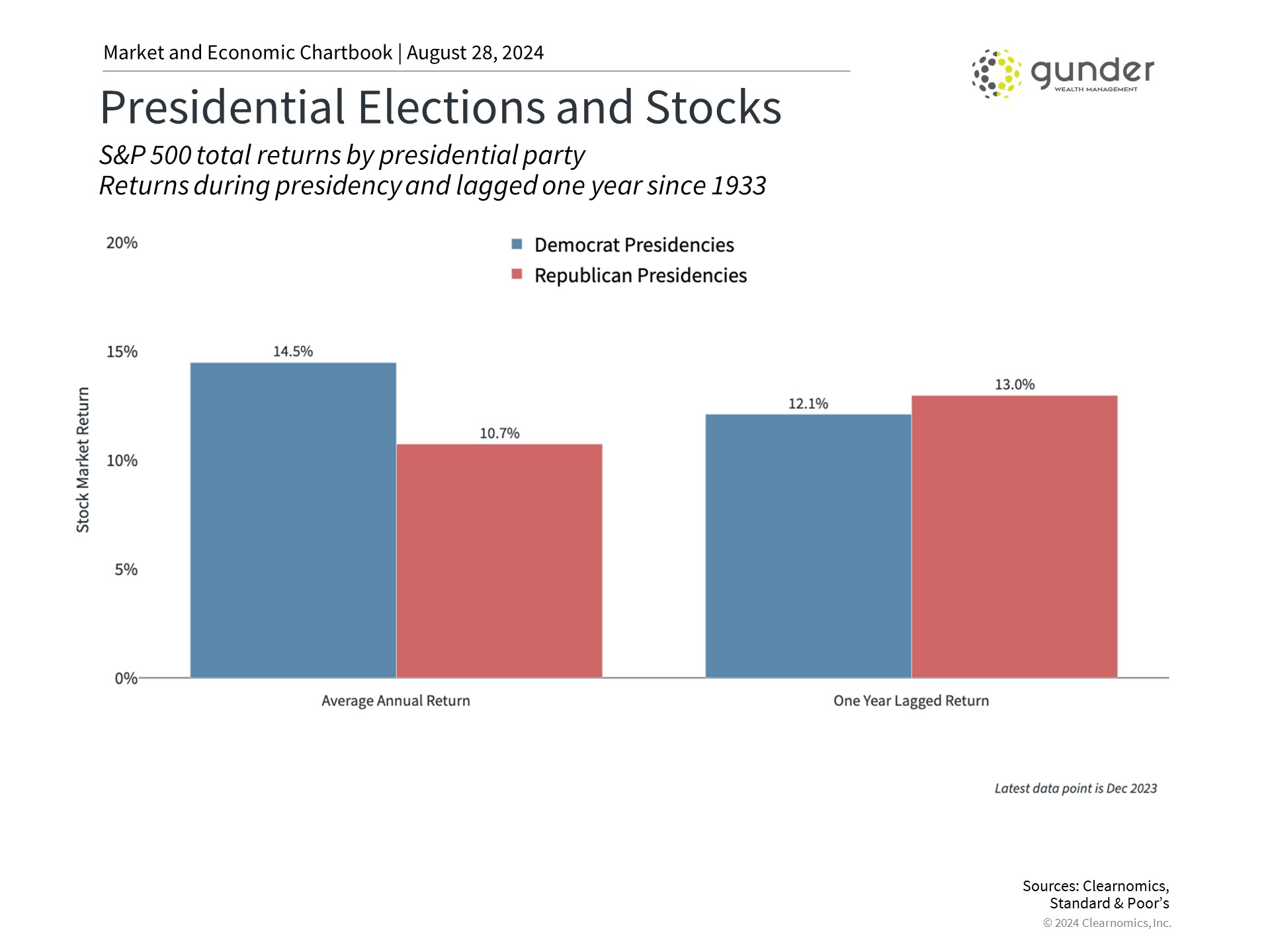
With the presidential election just two months away, the candidates’ economic policy platforms are only now beginning to take shape. Investors might be concerned about how each policy platform may impact the economy and financial markets. As with all elections, the perceived stakes are high, and with greater political polarization in recent years, emotions are running as hot as ever. In this challenging environment, what should investors consider in the months ahead to prevent their political concerns from negatively affecting their financial plans?
Separating personal views from financial decisions
Political issues undoubtedly play an important role in our daily lives, influencing everything from tax bills to industry regulations. This heightens the importance of elections since they are how we can express our preferences for various social and economic policies. However, it’s critical for investors to vote at the ballot box and not with their portfolios.
When viewed through a long-term investment lens, presidents often receive too much credit (and blame) for economic conditions. The true drivers of long-term economic performance are the underlying business cycle trends, which are far more powerful and long-lasting than any single administration’s policies and are what drive investment returns and wealth creation.
Presidential elections are important politically but distract investors financially
Since World War II, a dozen business cycles and recessions have transpired, including the recent pandemic crash, the 2008 global financial crisis, and the 2000 dot-com bust.
These resulted from external shocks to the economy and trends that had little to do with who controlled the White House. Globalization, the information technology revolution, and the expansion of financial markets over these years played far greater roles.
The overall pattern is clear: the economy has grown steadily across both political parties over the past eight decades.
This is not to say that economic policies do not matter; investors should not overreact to the results of any individual election or a specific policy. It’s often the economy that impacts elections and not vice versa.
The chart below illustrates the average annual return of the S&P 500 during Democratic and Republican presidencies since 1933. As you can see, the returns are robust no matter who controls the Whitehouse!

Proposed tax policy
As expected, there are differences in key areas like taxes and the policy tools each candidate would use. Trump favors extending his administration’s tax cuts and potentially lowering corporate tax rates. Harris is focused on tax credits for middle- and lower-income Americans and increased tax rates on those earning over $400K.
Despite the differences between the two parties, many policies often stay in place during transitions of power, and the changes that occur tend to be incremental. This is a feature of our political system since it takes broad support to enact new policies.
Of course, the government must pay for tax cuts and credits somehow – either through lower spending in other parts of the federal budget, higher tax receipts, or rising debt levels. Unfortunately, since government spending tends only to rise, recent history shows that the likely result will be higher government debt. Higher tax rates are also a concern among many investors, especially because individual tax rates are still relatively low by historical standards. This emphasizes the importance of proper tax planning!
Action (or inaction) to take
While many investors are nervous about the presidential election’s impact on the economy and markets, investors should tune out the noise and stay committed to their long-term investment plan.
Let us know if you want to discuss your investment allocation further as we head into election season. Feel free to book some time with us here.
Please consult with your financial advisor and/or tax professional to determine the suitability of these strategies. All views, expressions, and opinions in this communication are subject to change. This communication is not an offer or solicitation to buy, hold or sell any financial instrument or investment advisory services.
